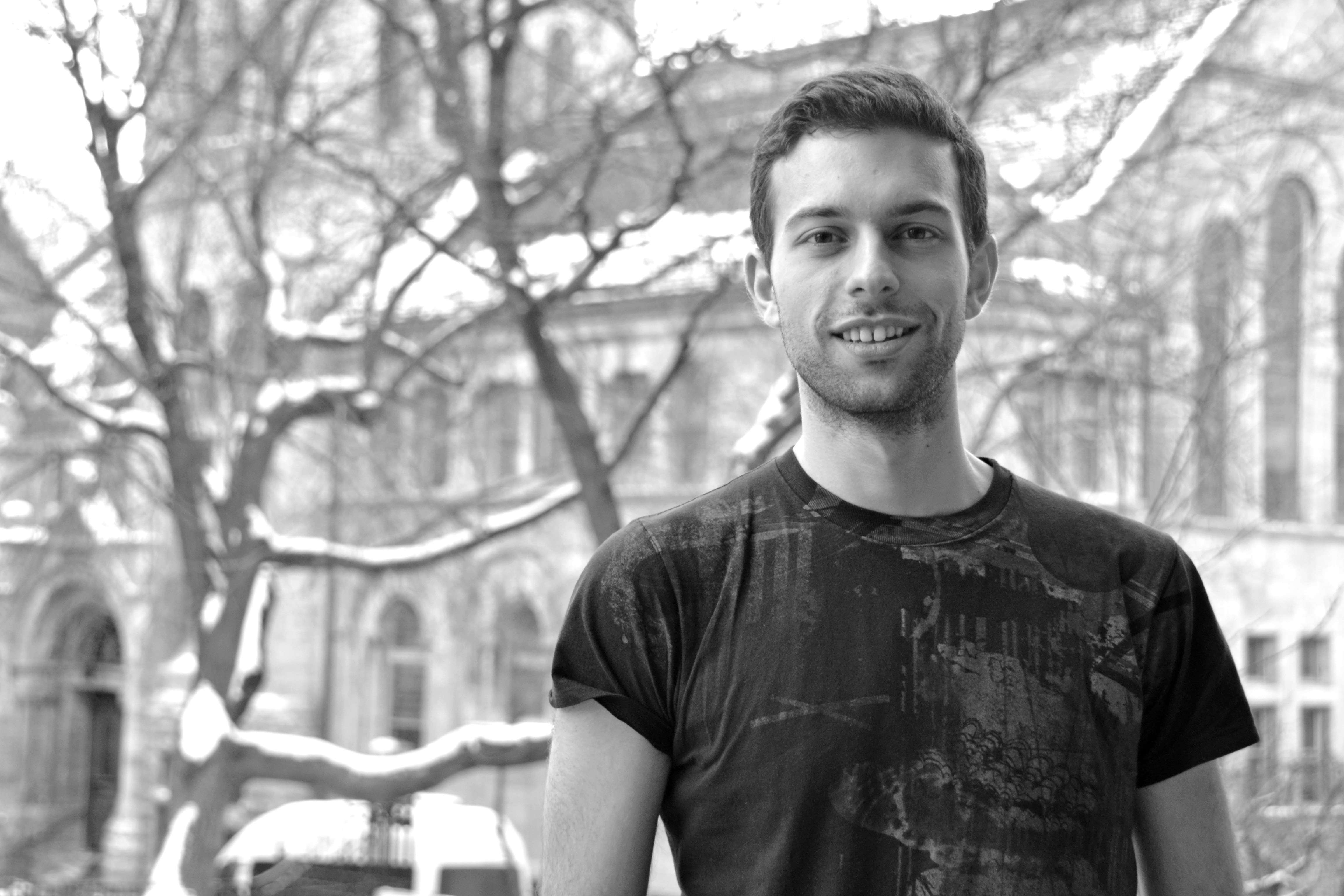Basil Kadoura, a U3 neuroscience student, has always had pets, so it comes as no surprise that he currently enjoys spending his days in the lab playing with mice. Working under the supervision of McGill professor Jeffrey Mogil, Kadoura is investigating a chemosignaling study concerning how mice respond to male and female experimenters in terms of pain behaviours. Chemosignals—also known as pheromones—are chemicals secreted into the environment by animals, which affect the behavior of other animals of the same species.
“We are looking at olfactory cues with male versus female experimenters and seeing how it is affecting pain behaviours in mice,” Kadoura explained. “Something Dr. Mogil found and published a couple years ago is that mice show pain behavior on their face—how tight they squeeze their nose or mouth or whiskers shows how much pain they are in. We looked at [their behavior] with male and female experimenters. [If our research confirms our hypothesis that mice respond differently to male experimenters], it’s kind of a big deal, because it means male experimenters have been affecting trials and research [with mice] for so long.”
Basically, Kadoura observes the reaction of mice in the presence of male experimenters compared to female experimenters, and records and analyzes their degree of pain behaviour.
Though Kadoura will be completing his undergraduate research project with Mogil, he has worked in other laboratories before. Since his second semester at McGill, Kadoura has experienced a total of five different laboratories, ranging from human trials to mouse work.
“That’s why I appreciate my [current] lab so much—because I’ve experienced other labs,” Kadoura said. “I think I’ve been lucky in my research career not to have any horrible experiences, but exploring and being adventurous is important. You can also try a lot of things, from humans to mice testing […] It’s like, if you don’t taste how sour a lemon is, can you appreciate how sweet—I don’t know—a gummy bear is?”
Kadoura appreciates the opportunities he has received from working in a variety of labs, with particular emphasis on the current lab he is in now.
“The social atmosphere of our lab is really great […] you are a part of this lab; your questions will be answered and they will be answered sincerely. As a general thing, it is fantastic,” Kadoura explained. “The other thing is the help I’ve received. Research can be arduous and repetitive; and [so] it’s nice when you don’t have to sit there and watch 20 hours of mice videos, you only have to watch 10. It’s great to have that support and I’m really lucky.”
Some of Kadoura’s other work has included concussion research and establishing a recruitment process for a study. Kadoura particularly appreciates the opportunity he received to see a research project transition from an idea to a publication.
“I helped create a study and this recruitment process for the study,” Kadoura explained. “The paper is now published […] it took two years, but it was worth it.”
Although Kadoura plans to pursue medicine, he sees research as a critical part of his career.
“Research has always been something that I wanted to be a part of my life,” Kadoura said. “I don’t know in what way, but I know it will be there. [When I first came to McGill], I started seeing professors from McGill talking about their research and then I started to volunteer in a lab and work in a lab. It progresses and you figure out what works for you, but I think coming to McGill, one of the main draws was for research.”
What’s your favourite job at the lab?
“I do like playing with mice. When you go into a lab where you are dealing with mice you have to go through the training—how to handle a mouse, how to hold a mouse, how to transfer a mouse. They’re actually kind of cute, they’re fun to play with.”
If you could choose a super power, what would it be?
“You don’t understand how much I’ve thought about this. Teleporting, telekinesis, and flying are probably my top three. Can I have three? And freezing time—oh, that’s four.”
Advice for other students applying for a lab job?
“My advice would be to email professors […] I would spend the time to look into their publications and see what they are doing. One of the other pieces of advice is that it is also important how well you fit with that lab. You need to find [a lab] where you are going to enjoy your time, because otherwise, research is not going to be a good experience for you. As an undergrad you don’t want to be picky, but at the same time you don’t want to be miserable. If this is someone who you are seriously thinking of doing graduate school with, you want to appreciate the lab that you’re working in.”
If you were a mad scientist, what would you do in your lab?
“I’ve thought about this a lot too. [It’s] tough, because I have studied [many areas of research], so I’m into a lot of different topics. There is sleep—I’m really interested in sleep—sexual development, that’s really cool, and I get to work on pain in the Mogil lab [….] So, I think, if I were a mad scientist, I would do it all. I would figure out a way to look at various different things at once. I would have a PhD student looking at sexual development, I would have a PhD student looking at lucid dream—kind of like world domination as a scientist.”








